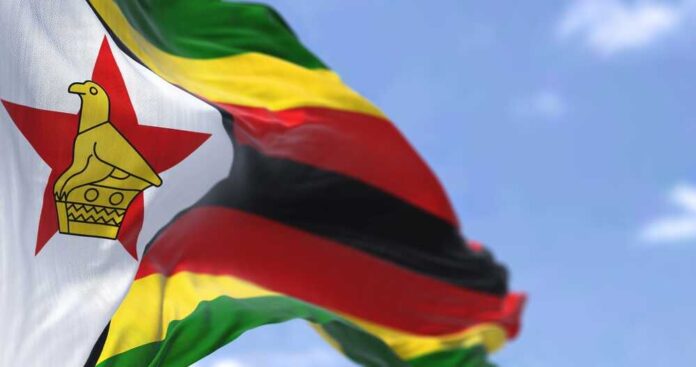
In a move aimed at stabilizing Zimbabwe’s local currency and combating inflation, the Reserve Bank of Zimbabwe (RBZ) is set to introduce a gold-backed digital currency to be used as legal tender throughout the nation. This innovative step will allow Zimbabwean citizens to exchange small amounts of their local currency for digital gold tokens, effectively safeguarding against exchange rate volatility.
The RBZ has grappled with currency instability and inflation for over a decade. After a period of severe hyperinflation, Zimbabwe adopted the U.S. dollar as its official currency in 2009. To revive the struggling economy, the Zimbabwean dollar was reintroduced in 2019. However, the government returned to the U.S. dollar last year to curb surging prices in the country.
Zimbabwe's Central Bank Plans Gold-Backed Digital Currency to Stabilize Local Economy 📊
The central Reserve Bank of Zimbabwe (RBZ) plans to introduce a gold-back digital currency, meant to be used as legal ledger within the country. pic.twitter.com/ku5g7m6fXI
— Crypto Chronicles (@S021J) April 24, 2023
Reserve Bank of Zimbabwe Governor John Mangudya has stated that the plan intends to “leave no one and no place behind.” He believes the exchange rate in the parallel market will stabilize once tobacco farmers receive U.S. dollar payments in the coming weeks. The current exchange rate volatility is attributed to “expectations of increased foreign currency supply” on the market due to the tobacco season.
As part of its initiative, the RBZ is leveraging the country’s gold reserves to anchor the Zimbabwe dollar. The digital gold tokens will complement the Mosi-oa-Tunya gold coins by providing an alternative investment avenue to store value and transact. According to Dr. Mangudya, the digital gold tokens are designed to “ensure that those with low amounts of local currency are able to purchase the gold units.”
Zimbabwe is not alone in exploring digital currency solutions. An increasing number of central banks worldwide are developing their own digital currencies to enhance financial inclusion, reduce payment fees, and modernize money management. Russia, for example, is collaborating with Iran and China to establish clearing platforms for cross-border settlements in gold-backed digital currencies, seeking to phase out transactions in fiat currencies like the United States dollar and the Euro.
Crypto adoption has surged in many African countries due to economic challenges. A report by Chainalysis highlights that the Middle East and North Africa is the fastest-growing region for crypto adoption, primarily driven by cross-border remittances. Between July 2021 and June 2022, the region saw over $566 billion in crypto transactions, a 48% increase from the previous year.
In light of these developments, Zimbabwe National Chamber of Commerce (ZNCC) CEO Christopher Mugaga has urged the government to focus on implementing monetary policies that promote currency stability rather than concentrating on parallel market rates. In addition, Mugaga believes that measures such as gold digital tokens and gold coins will help contain excess money in the economy, moving Zimbabwe toward financial security.










